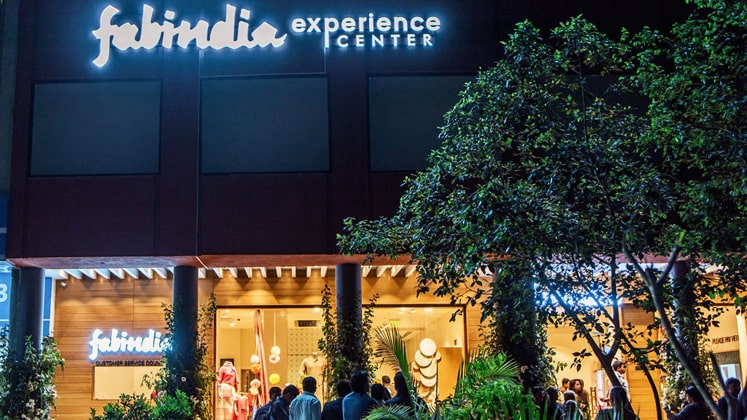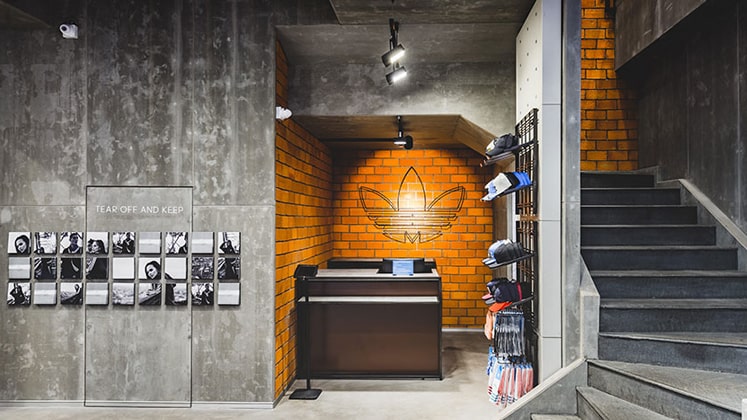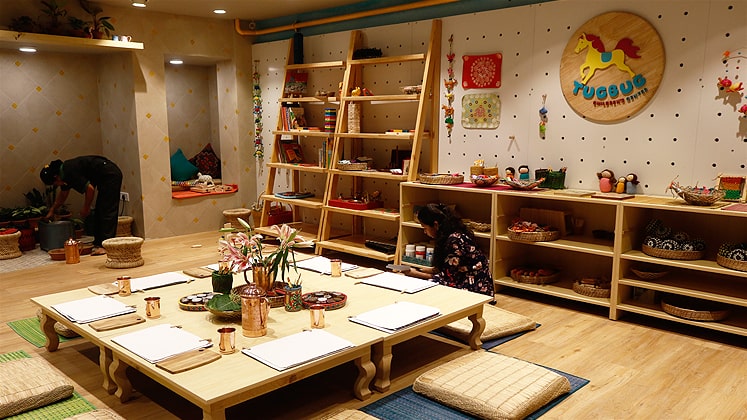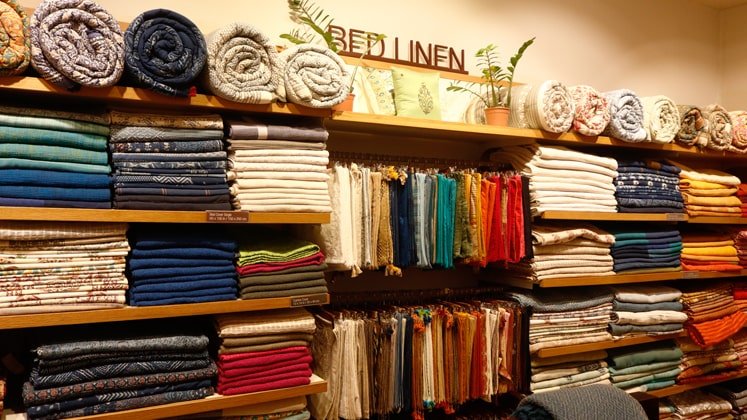News and Features
Experiential retail: Creating a big industry buzz
18 February 2019
Apparel Resources

Retail brands today are letting their products speak for themselves and that’s their new modus operandi. Experiential retail is the new concept that are taking the center-stage. With the advent of online shopping, e-commerce is gaining a momentum establishing an ever-increasing foothold in the industry and decreasing store visits by shoppers. At the same time, offline stores are offering authentic experiences rather purely transactional. In line with this trend and in order to remain relevant in a competitive retail scenario, fashion brands like Fabindia, Adidas India, Project Eve, etc. are now moving towards experiential retail.
Why Go Experiential?
“Retail is increasingly revolving around creating new and immersive experiences, which are helping customers’ experience, brand, creating memories that you would want to come back for. This is a welcome nudge to physical retail as it will up the game. Whether it is inclusion of new services or assisted selling using technology, physical retail formats across the world over have been experimenting with various formats and it is great to see that momentum is spreading across the market. At the end of the day, any retailer is only as happy as his customer is,” asserts Karan Kumar, Chief Brand & Marketing Officer, Fabindia.
The last decade has brought immense changes in the overall retail environment, which has led to both online and offline stores to integrate the two experiences for a better and much evolved retail experience. According to ASSOCHAM, experiential retail is set to drive the Indian retail market, which will reach US $ 1.1 trillion by 2020. But then, what are the reasons for this sudden advent? The reasons can be time, craving for personal touch and valuing experiences over things.

Experts agree that brands are gearing up to disrupt offline retail by offering experience that is intuitive, immersive and will create memories for life. Globally, brands like GAP have infused augmented reality in its stores. Similarly, Nike has built a basketball trial zone surrounded by HD screens at its NYC store, where consumers can try basketball shoes and play inside to get a real feel of the shoes. In line with this, fashion brands back home have also gone all out to offer same retail set-up to their customers.
For Adidas Originals, millennials are the key consumer segment and the brand has been at the forefront in offering its customers’ experiences that are well prevalent in the global markets.
Amrith Gopinath, Brand Marketing Director, Adidas India, says: “Experience-based stores enable brands in story-telling, which in turn helps customers understand the product as well as connect with it. Shoppers want a seamless shopping experience and catering to this expectation can influence their final purchase. Today, successful brands merge their offline and online experiences to give a true omni-channel shopping experience. The format of experience-based concept stores have worked well for Adidas Originals.”
Simultaneously, Fabindia has its genesis in a unique exercise that has been undertaken to look at 100 different reasons for customers to visit a bricks-and-mortar store.
“While the focus certainly remains on sales, the approach to selling has shifted gears. We have seen our customers being engaged in a greater way at our centres, spending time and navigating through different categories. This has led to greater up-sell and cross-sell opportunities, leading to an increase in the basket size and average bill value,” informs Karan.

The Fabindia experience centre engages the complete family with its offerings. In addition to its signature product offerings, it has wellness centres filled with products from Organic India. It also has a small room with a massage chair. It allows customers to interact with trained consultants on various aspects of health, lifestyle and well-being. There is also an additional Alteration Studio as well as Interior Design Studio, which is a one-stop design solution for creating memorable spaces, while providing a range of services as consultancy on layouts, mapping spaces, product customisation and colour scheme coordination, etc. There is also a kids’ zone with trained staff, where they can try pottery.
What’s In Trend?
The in-store experience must be crafted based on customer understanding. It is important to note that customers will go to stores not just to shop, but because of a connection they want with the brand. Experiential retail is not just about splurging on fancy gadgets, what really creates a difference is personalized shopping experience.
Fabindia has recently opened another experience centre in Gurgaon after Delhi, Mumbai and Bangalore.
Karan explains, “Delhi continues to be an important market for us. It continues to drive a fairly large volume of discerning consumption. Gurgaon, on the other hand, has rapidly evolved to become another extremely important market. The city has large population of high-spending working people – relatively younger and conscious of the choices they make.”

Besides experience retail outlets include creating informational displays, wherein customers can browse through the overall collection and also through real-time store inventory with just a click; tech-savvy set-up including use of virtual reality, magic mirrors, which allows one to try on the merchandise without even wearing one, etc.; engaging all the senses of customers; organising competitions within stores with sweepstakes and give-away prizes, among other things.
India is a diverse country, which makes it impossible to generalise the customer preferences and to know what works in terms of product innovations and styles, activations and retail formats. Nevertheless, the retail market is evolving as well as the unique experiences being offered by them. For Fabindia, experience retail forms a major part of its plans for future. Karan concludes saying, “Presently, the company has 286 stores across 105 cities in India and 14 international stores... We plan to open around 100 experience stores over the next 18-24 months and you can be certain that these would find presence across geographies and market tiers.”
Comments

